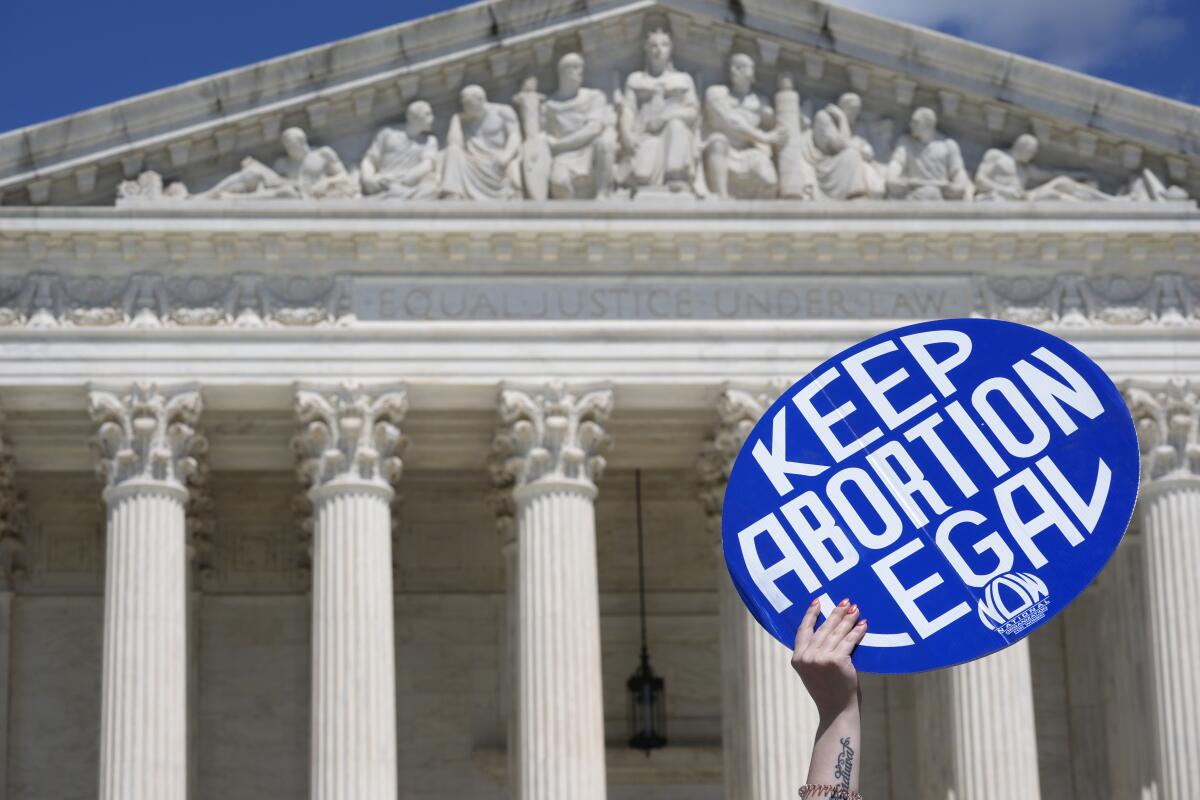More women ending pregnancies on their own, study suggests. Some resort to unsafe methods

A growing number of women said they’ve tried to end their pregnancies on their own by doing things like taking herbs, drinking alcohol or even hitting themselves in the belly, a new study suggests.
Researchers surveyed reproductive-age women in the U.S. before and after the Supreme Court overturned Roe vs. Wade in June 2022. The proportion who reported trying to end pregnancies by themselves rose from 2.4% to 3.3%. Study authors acknowledged that the increase is small, but data suggest it could number in the hundreds of thousands of women.
Researchers surveyed about 7,000 women six months before the Supreme Court decision, and another 7,100 a year after the ruling, asking participants whether they had ever taken or done something on their own to end a pregnancy.
“Our data show that making abortion more difficult to access is not going to mean that people want or need an abortion less frequently,” said Lauren Ralph, a UC San Francisco epidemiologist and an author of the study published recently in the journal JAMA Network Open.
Women gave various reasons for handling their own abortions, such as wanting privacy, concern about cost and preferring to try to end their pregnancies by themselves first. Some took medications — including emergency contraception and abortion pills obtained outside the medical system and without a prescription. Others drank alcohol or used drugs. Some resorted to potentially harmful physical methods such as hitting themselves in the abdomen, lifting heavy things or inserting objects into their bodies.
Some said they suffered complications like bleeding and pain and had to seek medical care; some said they later had an abortion at a clinic.
Ralph said respondents may be under-reporting their abortions because researchers are asking them about “a sensitive and potentially criminalized behavior.” The research was funded by the David and Lucile Packard Foundation, the William and Flora Hewlett Foundation and a third foundation that was listed as anonymous.
Ungar covers science for the Associated Press. AP polling editor Amelia Thomson DeVeaux in Washington contributed to this report.
More to Read
Sign up for Essential California
The most important California stories and recommendations in your inbox every morning.
You may occasionally receive promotional content from the Los Angeles Times.





